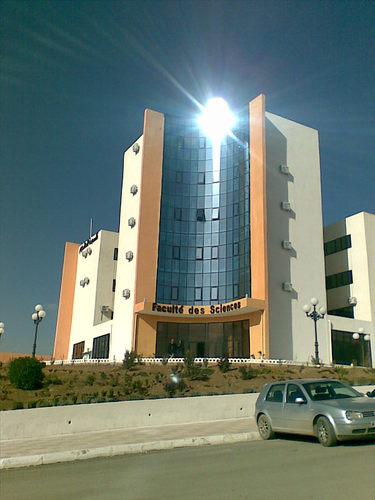University SÃĐtif 1 FERHAT ABBAS Faculty of Sciences
DÃĐtail de l'auteur
Auteur Ian Goodfellow |
Documents disponibles écrits par cet auteur


 Ajouter le rÃĐsultat dans votre panier Affiner la recherche
Ajouter le rÃĐsultat dans votre panier Affiner la recherche
Titre : Deep learning Type de document : texte imprimÃĐ Auteurs : Ian Goodfellow, Auteur ; Yoshua Bengio, Auteur ; Aaron Courville, Auteur Editeur : Cambridge (Mass.) : the MIT Press AnnÃĐe de publication : copyright 2016 Collection : Adaptative computation and machine learning series Importance : 1 vol. (775 p.) PrÃĐsentation : ill. en noir et en coul., couv. ill. en coul. Format : 24 cm ISBN/ISSN/EAN : 978-0-262-03561-3 Note gÃĐnÃĐrale : 978-0-262-03561-3 Langues : Anglais (eng) CatÃĐgories : Informatique Mots-clÃĐs : Apprentissage automatique
Apprentissage profond
ModÃĻles mathÃĐmatiques
Intelligence artificielle
Analyse multivariÃĐeIndex. dÃĐcimale : 006.3 Intelligence artificielle RÃĐsumÃĐ :
La 4e de couverture indique : "Deep learning is a form of machine learning that enables computers to learn from experience and understand the world in terms of a hierarchy of concepts. Because the computer gathers knowledge from experience, there is no need for a human computer operator to formally specify all the knowledge that the computer needs. The hierarchy of concepts allows the computer to learn complicated concepts by building them out of simpler ones ; a graph of these hierarchies would be many layers deep. This book introduces a broad range of topics in deep learning."Note de contenu :
Sommaire
I. Applied math and machine learning basics
2. Linear algebra
3. Probability and information theory
4. Numerical computation
5. Machine learning basics
II. Deep networks : modern practices
6. Deep feedforward networks
7. Regularization for deep learning
8. Optimization for training deep models
9. Convolutional networks
10. Sequence modeling : recurrent and recursive nets
11. Practical methodology
12. Applications
III. Deep learning research
13. Linear factor models
14. Autoencoders
15. Representation learning
16. Structured probabilistic models for deep learning
17. Monte Carlo methods
18. Confronting the partition function
19. Approximate inference
20. Deep generative modelsCôte titre : Fs/23308-23309 Deep learning [texte imprimÃĐ] / Ian Goodfellow, Auteur ; Yoshua Bengio, Auteur ; Aaron Courville, Auteur . - Cambridge (Mass.)Â : the MIT Press, copyright 2016 . - 1 vol. (775 p.) : ill. en noir et en coul., couv. ill. en coul. ; 24 cm. - (Adaptative computation and machine learning series) .
ISBN : 978-0-262-03561-3
978-0-262-03561-3
Langues : Anglais (eng)
CatÃĐgories : Informatique Mots-clÃĐs : Apprentissage automatique
Apprentissage profond
ModÃĻles mathÃĐmatiques
Intelligence artificielle
Analyse multivariÃĐeIndex. dÃĐcimale : 006.3 Intelligence artificielle RÃĐsumÃĐ :
La 4e de couverture indique : "Deep learning is a form of machine learning that enables computers to learn from experience and understand the world in terms of a hierarchy of concepts. Because the computer gathers knowledge from experience, there is no need for a human computer operator to formally specify all the knowledge that the computer needs. The hierarchy of concepts allows the computer to learn complicated concepts by building them out of simpler ones ; a graph of these hierarchies would be many layers deep. This book introduces a broad range of topics in deep learning."Note de contenu :
Sommaire
I. Applied math and machine learning basics
2. Linear algebra
3. Probability and information theory
4. Numerical computation
5. Machine learning basics
II. Deep networks : modern practices
6. Deep feedforward networks
7. Regularization for deep learning
8. Optimization for training deep models
9. Convolutional networks
10. Sequence modeling : recurrent and recursive nets
11. Practical methodology
12. Applications
III. Deep learning research
13. Linear factor models
14. Autoencoders
15. Representation learning
16. Structured probabilistic models for deep learning
17. Monte Carlo methods
18. Confronting the partition function
19. Approximate inference
20. Deep generative modelsCôte titre : Fs/23308-23309 Exemplaires (2)
Code-barres Cote Support Localisation Section DisponibilitÃĐ Fs/23308 Fs/23308-23309 livre Bibliothèque des sciences Français Disponible
Sorti jusqu'au 16/02/2026Fs/23309 Fs/23308-23309 livre Bibliothèque des sciences Français Disponible
Disponible


